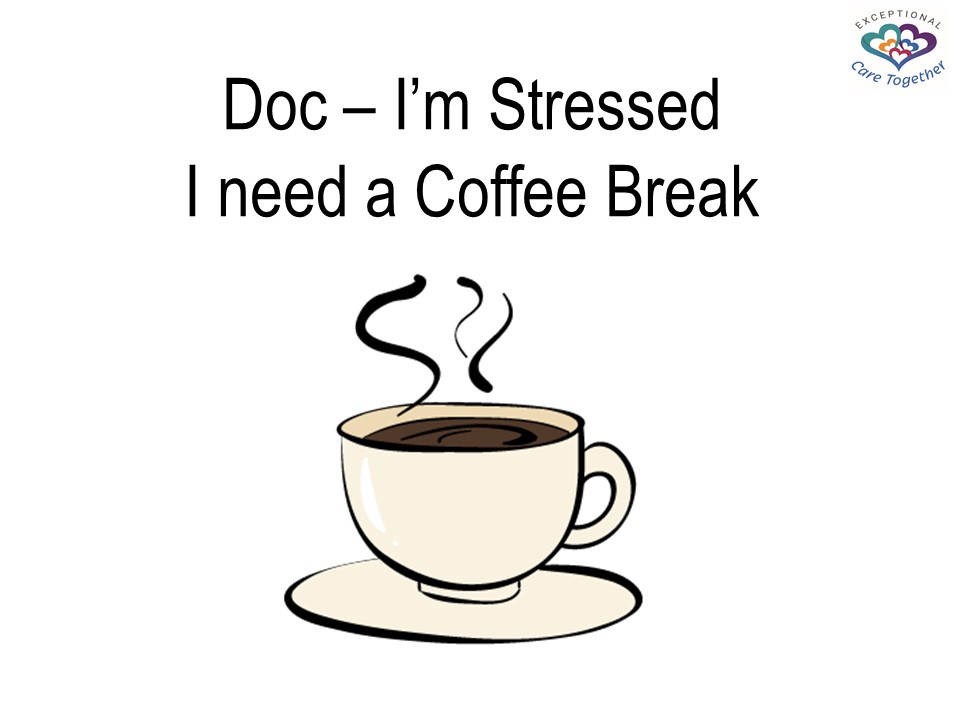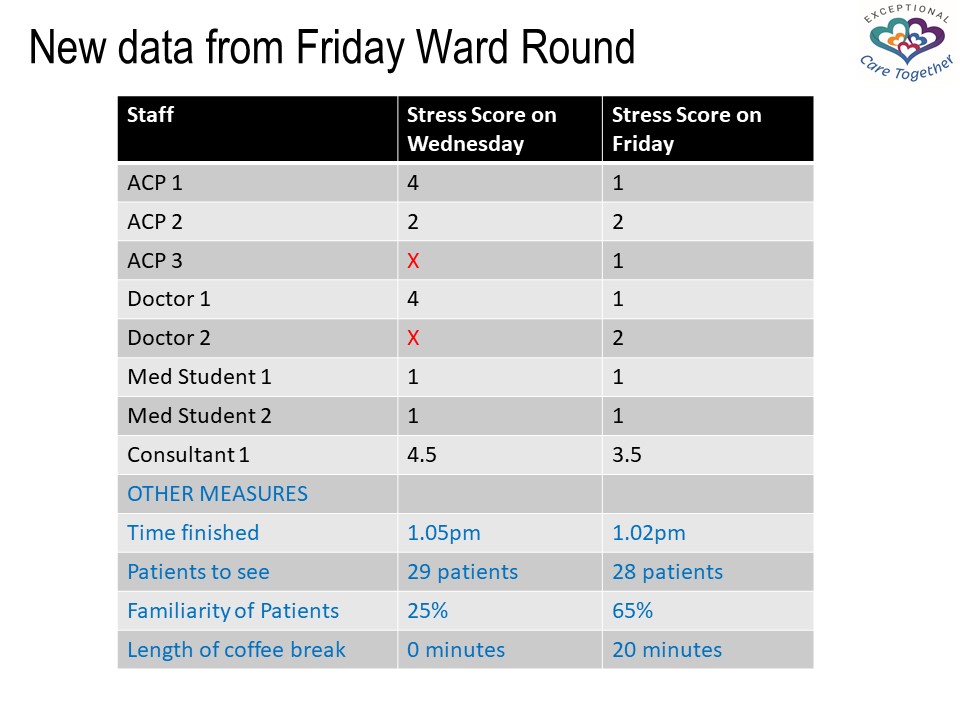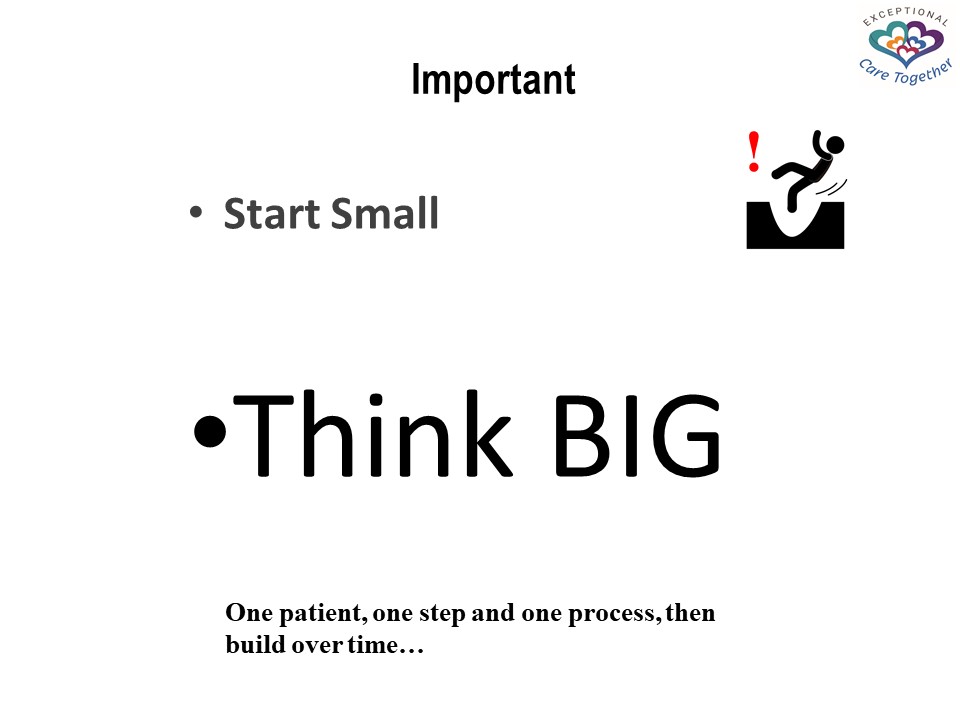
Doc I'm stressed, I need a #CoffeeBreak
How trying out #SmallTestsofChange and #PDSA could be used to improve staff #Wellbeing during a long medical ward round
Would be great to see what you think, and if you have tried something like this.
Follow #Thread and click on pics
How trying out #SmallTestsofChange and #PDSA could be used to improve staff #Wellbeing during a long medical ward round
Would be great to see what you think, and if you have tried something like this.
Follow #Thread and click on pics

During a consultant ward round on a 30 bedded respiratory ward, one of our ACP's said that she found the 4-hour long ward round stressful and tiring, and was wondering whether we could include a break of some sort for a cup of tea or coffee #changeidea. To refresh the staff.
The consultant was worried that if we did this, we may not complete ward round by 1pm and potentially delay management of patients. And lead to even more stress!
To #understand the problem better, we asked all our ward round staff that day (Wednesday) what they thought.
We collected stress levels for everyone straight after ward round using made up stress-o-meter scale!
Scale 1 - Pure Bliss to 5 - Most stressed ever
#measurement
We collected stress levels for everyone straight after ward round using made up stress-o-meter scale!
Scale 1 - Pure Bliss to 5 - Most stressed ever
#measurement

We decided on an #aim so that we know what we are trying to achieve
"Aim: To reduce the level of self-reported stress by staff during a full medical ward round by 50% on our respiratory ward within 2 weeks"
"Aim: To reduce the level of self-reported stress by staff during a full medical ward round by 50% on our respiratory ward within 2 weeks"
Thought we better collect more info to help us. All scribbled on back of A4 sheet of paper...
1. Time Ward Round finishes
2. Patients on Ward
3. Patient familiarity to team
4. Length of coffee break
See pic for baseline data. Staff were indeed 'stressed', the consultant too!
1. Time Ward Round finishes
2. Patients on Ward
3. Patient familiarity to team
4. Length of coffee break
See pic for baseline data. Staff were indeed 'stressed', the consultant too!

Let's #PDSA
#Plan: We planned coffee break at 11.30am that Friday for 15 mins. Using local ward coffee machine. All ward round staff be offered coffee/tea.
#Measures: Same as baseline measurements
#Prediction: Probably finish later by 30mins, everyone will still be stressed!
#Plan: We planned coffee break at 11.30am that Friday for 15 mins. Using local ward coffee machine. All ward round staff be offered coffee/tea.
#Measures: Same as baseline measurements
#Prediction: Probably finish later by 30mins, everyone will still be stressed!

#Do We tested our plan...& #observed
On Friday, Coffee break actually took place a bit later at 11:45 and lasted 20 mins, we used a different room to accommodate us all. Everyone except medical students asked for a tea/coffee
We collected same data so we could compare...

On Friday, Coffee break actually took place a bit later at 11:45 and lasted 20 mins, we used a different room to accommodate us all. Everyone except medical students asked for a tea/coffee
We collected same data so we could compare...


#Study the data
We were surprised...
Patients more familiar to team on Friday
Coffee breaks do not last 15 minutes
Ward round finished on time 1.02pm
Stress levels for some staff were less
Consultant still stressed (but a bit less)
Medical students are always in state of Zen!
We were surprised...
Patients more familiar to team on Friday
Coffee breaks do not last 15 minutes
Ward round finished on time 1.02pm
Stress levels for some staff were less
Consultant still stressed (but a bit less)
Medical students are always in state of Zen!

#ACT
What would you do now after studying new data?
Options below...
1. Adopt coffee break with no further changes
2. Adapt (e.g. longer coffee break or Try Costa instead)
3. Abandon – no evidence of improvement
4. Repeat – collect more data on different days
Leave reply...
What would you do now after studying new data?
Options below...
1. Adopt coffee break with no further changes
2. Adapt (e.g. longer coffee break or Try Costa instead)
3. Abandon – no evidence of improvement
4. Repeat – collect more data on different days
Leave reply...

So just wanted to share with what a #PDSA cycle might look like for staff #wellbeing.
All steps are important, Don't overlook #Do & #Study. Did change idea meet your #prediction, if not, why?
What is your learning. How might this inform your #ACT and your next #PDSA cycle...


All steps are important, Don't overlook #Do & #Study. Did change idea meet your #prediction, if not, why?
What is your learning. How might this inform your #ACT and your next #PDSA cycle...



What did we do? We adapted and went to Costa Coffee! But felt it also important to collect measures on different days. Given #variation in patient numbers, staff changing etc.
We asked 49 East Midland IMT trainees, see what #ACT they did...Do you agree?
Hope you enjoyed #Thread

We asked 49 East Midland IMT trainees, see what #ACT they did...Do you agree?
Hope you enjoyed #Thread


• • •
Missing some Tweet in this thread? You can try to
force a refresh



